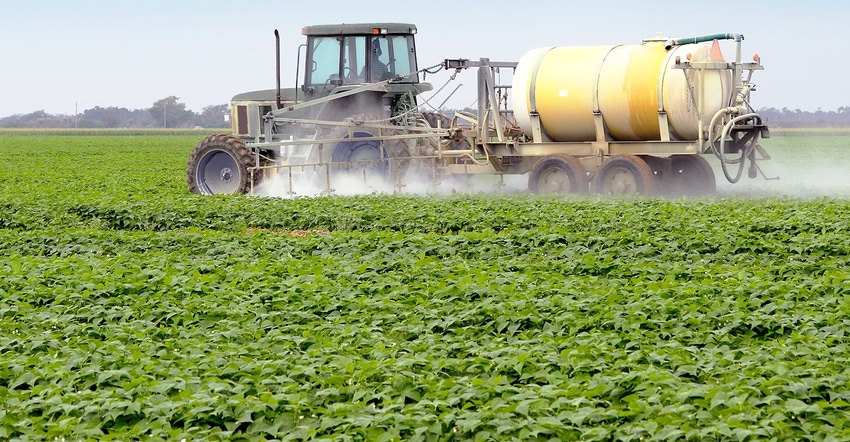April 20, 2017

By Annie Deutsch
Resistance is a word no one involved with agriculture wants to hear. The increasing number of cases of insects, disease and weeds that are resistant to pesticides is a major concern. If the trend continues, some pesticides may no longer be useful. This is especially true with herbicides.
In farming, controlling weeds is always going to be a challenge, regardless of the situation. Weeds that are resistant to herbicides have been around for decades, but the numbers are quickly growing. Whether you've already battled herbicide-resistant weeds or only heard rumors, resistance management is critical to prevent problems from developing and to keep existing problems from getting worse.
Currently in Wisconsin, the two weeds of most concern are common waterhemp and Palmer amaranth. Both plants are in the pigweed family, but unlike other pigweeds, these two plants produce extremely large amounts of seed, more competitive with other plants and typically emerge later in the season, so they may avoid some preemergent herbicide applications.
Waterhemp and Palmer amaranth also are both dioecious, meaning they have separate male and female plants, and there must be crossbreeding to produce viable seeds. This characteristic leads to a higher probability that resistance will develop, because the resistant trait can be in the pollen, which has been shown to travel up to 1,000 feet. Therefore, any female plant pollinated by a herbicide-resistant male plant could result in herbicide-resistant seed.
Crop scout
As of April 1, confirmed glyphosate-resistant waterhemp had been found in 17 counties in Wisconsin. Two of those counties had populations of waterhemp confirmed to be resistant to both glyphosate and PPO inhibitors. Glyphosate-resistant Palmer amaranth has been confirmed in two counties, and Palmer amaranth resistant to HPPD and ALS inhibitors has been confirmed in one county.
June is the time to go out in your fields and determine whether the herbicides you used had the intended results. If there are weed escapes, not only is it important to note that, but also to ask why. Many factors can cause poor herbicide performance, including:
• spraying weeds when they are larger than the label recommendation
• using a herbicide rate below the recommended level
• not adding the proper adjuvant
• a poor mixing of the herbicide(s)
• unfavorable environmental conditions, such as temperatures that were too cold or excessive dirt and dust on the plant leaves
Also, note the pattern of the weed escapes throughout the field. If they are in a repetitive pattern or strips down a row, then it is more likely a problem with the herbicide application rather than resistant weed populations, which would occur in more irregular patches.
Identify weeds
If you suspect resistance, the next step is to contact your local University of Wisconsin Extension ag agent or crop consultant. This person can assist with weed identification and help you determine whether there might be other factors causing the weed escapes rather than herbicide resistance. If resistance is most likely the cause, he or she can submit samples for further testing, if necessary, and lead you through management decisions.
With populations of resistant plants spreading throughout the state, farmers must be proactive with resistance management. First, make sure you walk your fields throughout the summer to look for weed escapes. Second, educate yourself about how to identify different weeds, especially when they are small. And lastly, make sure you are rotating herbicide modes of action, using tankmixes and incorporating other weed management practices into your management plan to reduce the likelihood that herbicide-resistant weed populations will develop on your farm.
Deutsch is the Door County Extension ag agent.
You May Also Like




